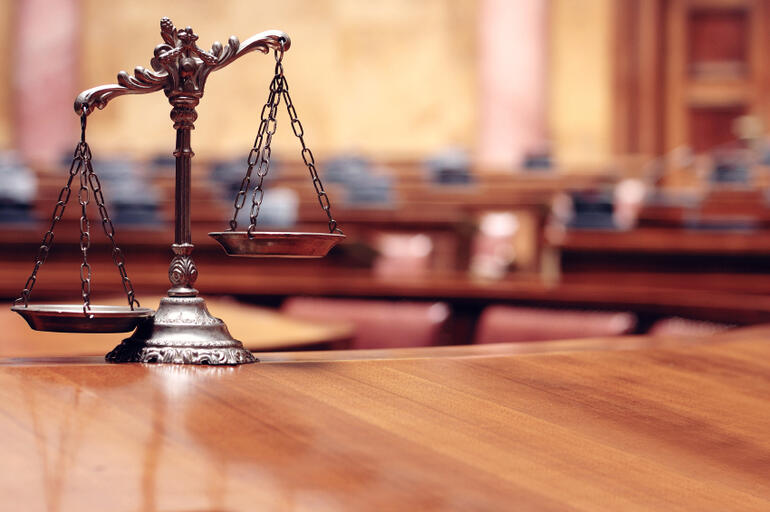Speak Up: Everything You Need To Know About Institutional Abuse
- Written by News Co Media

There are many forms of abuse. The most common are physical and sexual abuse, as when a person is beaten and wounded up cruelly or an unwanted sexual act is forced upon the victim. There is also verbal abuse when one constantly insults and demeans another with words.
On the other hand, emotional and psychological abuse happens when another is accused, humiliated, and is made to feel less of a person. Another is financial abuse, as when a person restricts another from having access to their common fund.
But what about institutional abuse? What is it all about? Indeed, it’s another form of abuse that has been there all the while without people realizing it. Perhaps you’ve unknowingly experienced the same. Or maybe a friend or family member of yours has already been a victim of institutional abuse.
Therefore, explained below are some vital pieces of information to know more about it.
What is Institutional Abuse?
The term institutional abuse is the maltreatment of any person- typically children, from a system of power. In an obvious way of understanding it, it occurs when a child or any individual’s needs or wishes are unreasonably sacrificed for the convenience of a group, service, or organization. It also happens when the victim is inside a care facility, an organization or institution where a different system is applied to that particular organization or institution.
An institution does not exist without any system. On the one hand, an institution is an established association with a mission, goals, and objectives like those dedicated to children or elderly care, education, religious, or public service. On the other hand, a system refers to the collected and organized rules, things, norms, or ways to accomplish an institution’s mission or goals.
The problem, however, is that this system or set of rules is vulnerable to exploitation by people who provide for and implement these rules. Of course, anyone who makes and executes the protocols has the power. And when this power is misused, abuses and oppressions happen.
There is also institutional abuse when the staff in any institution is poorly trained or even unsupervised. Consequently, said staff would make decisions or responses to situations not according to the protocols but according to their whims caprices.
Therefore, all oppressions and abuses occur in an institution when the rule-makers or their staff exploits the system.
What are Examples of Institutional Abuse?
So what are examples of institutional abuse? You may have already experienced it before you knew it. That’s why it’s essential to be aware of the concept of institutional abuse. Thus, here are its examples:
-
Child abuse or sexual abuse to children or orphans in any child care facility or religious organizations by their authorities or caretakers
-
Sexual harassment to students by their teachers or professors
-
Lack of adequate and precise procedures in any institution
-
Poor standards of care in a hospital, home for the aged, or any group home
-
Inappropriate use of control or arbitrary restriction in any labour organization
Cited examples above are only a few of what comprises institutional abuse because it may also occur in the family home when neglecting the children’s needs, excessive beating or wounding up, or sexual advances.
The crucial thing to remember is that the common denominator among these abuses is that the victim is deprived of having a good life with needs satisfied and a place to call his home.
What are the Long Term Effects of Institutional Abuse?
Sadly, institutional abuse has life-long effects on the abuse survivor’s overall well-being. Mental health problems include the difficulty of dealing with predicaments, pressure, or even parenting, leading the victim into depression. Social health problems include having an inferiority complex, lack of self-esteem, or mistrust of people. Physical health problems include having difficulty maintaining a marriage or an intimate relationship, especially when it comes to sexual intimacy.
Thus, if you think you are experiencing these effects now, try to revisit your childhood experiences. Do not shun off the memories and start doing something about it.
What is the Ultimate Remedy Available?
While people don’t talk about institutional abuse publicly, and while it’s embarrassing to talk about it, it’s still incumbent upon you to do something about it. Undeniably, it takes great courage. But you need to speak up for you to heal completely or to spread awareness for the sake of those silent victims.
Thus, one of the many remedies is to seek legal advice from a renowned law firm with a reputable track record on institutional abuse. It’s always the best idea to seek legal services because these lawyers know how to educate you about your rights and legal remedies available under the laws. You may be granted the monetary award for the damages you sustained.
Takeaway
Being a victim of abuse, especially institutional abuse, is something anybody wouldn’t want to undergo. Undoubtedly, it’s such a terrible experience and a painful memory. Thus, it’s not too late for you to speak up. Be aware of your rights. And know your lawyers.




